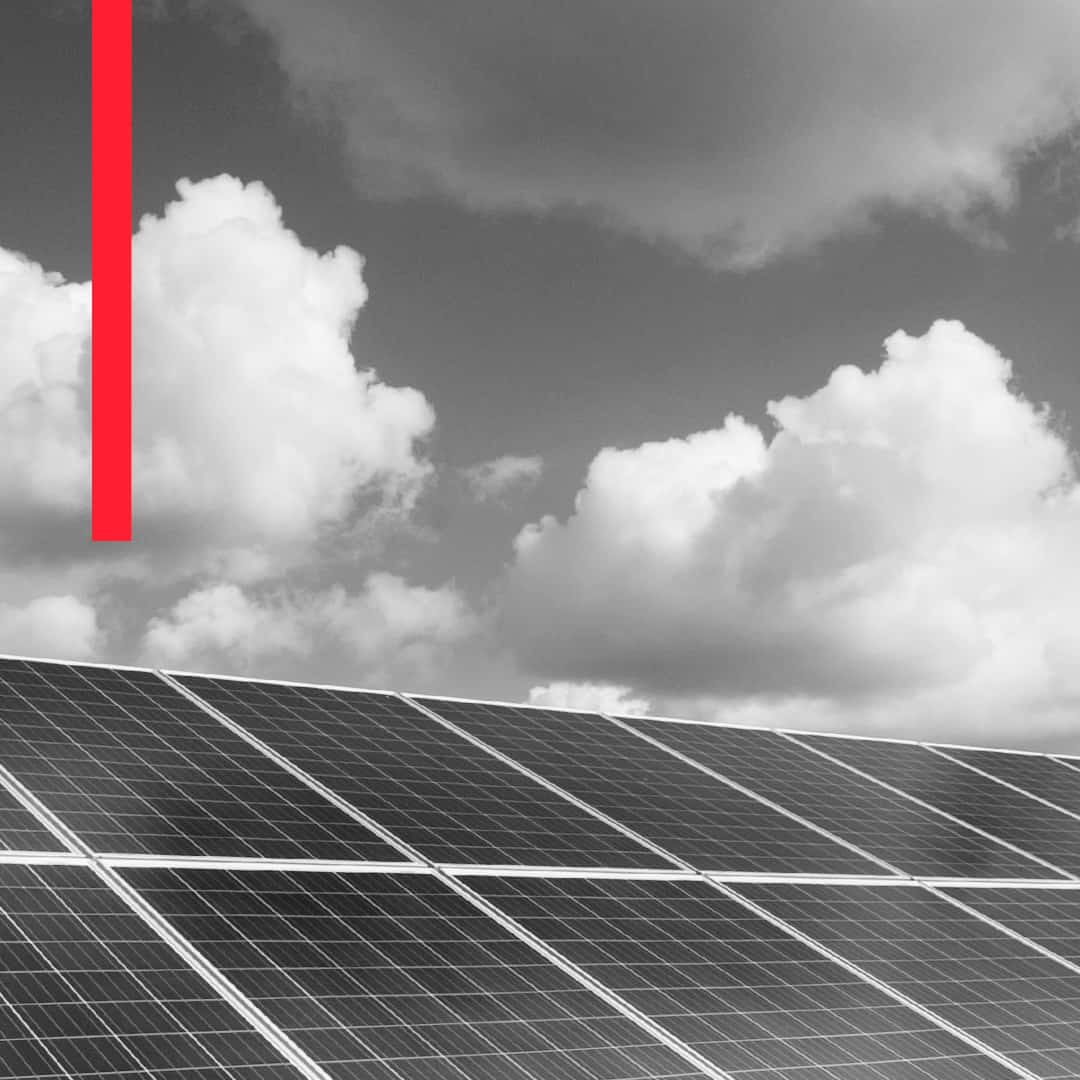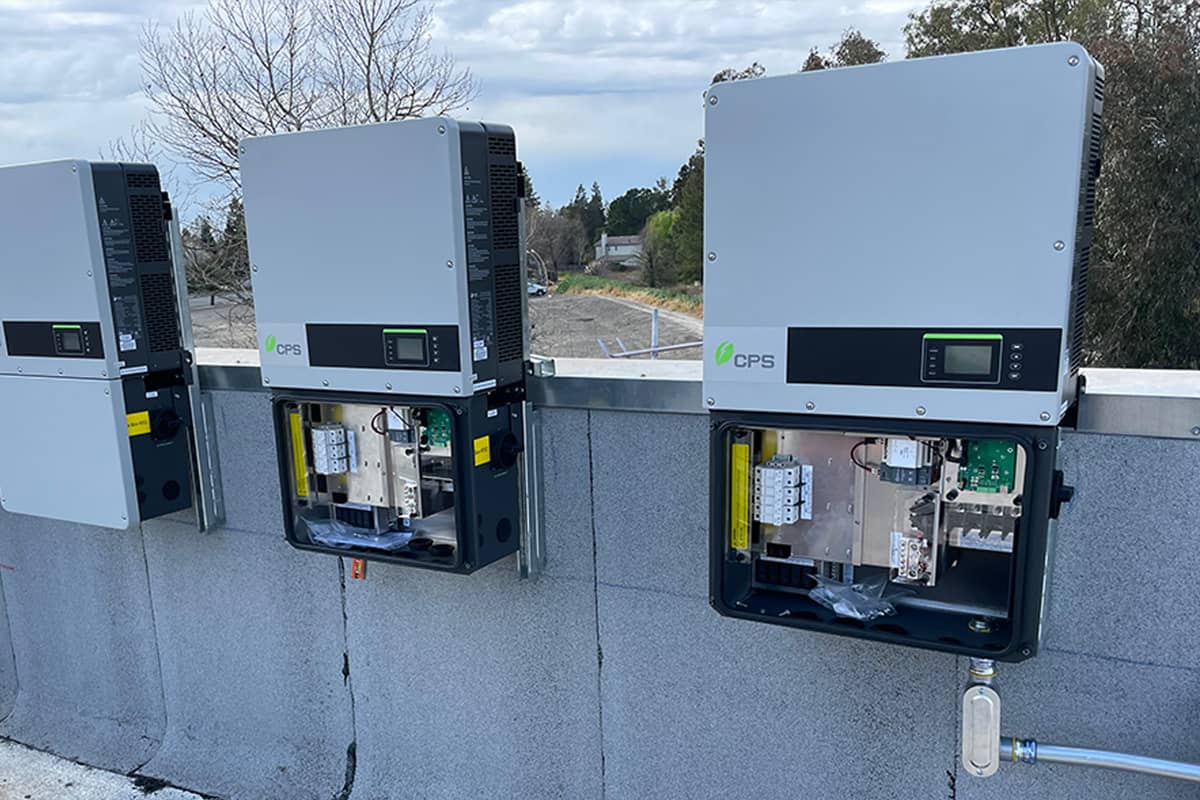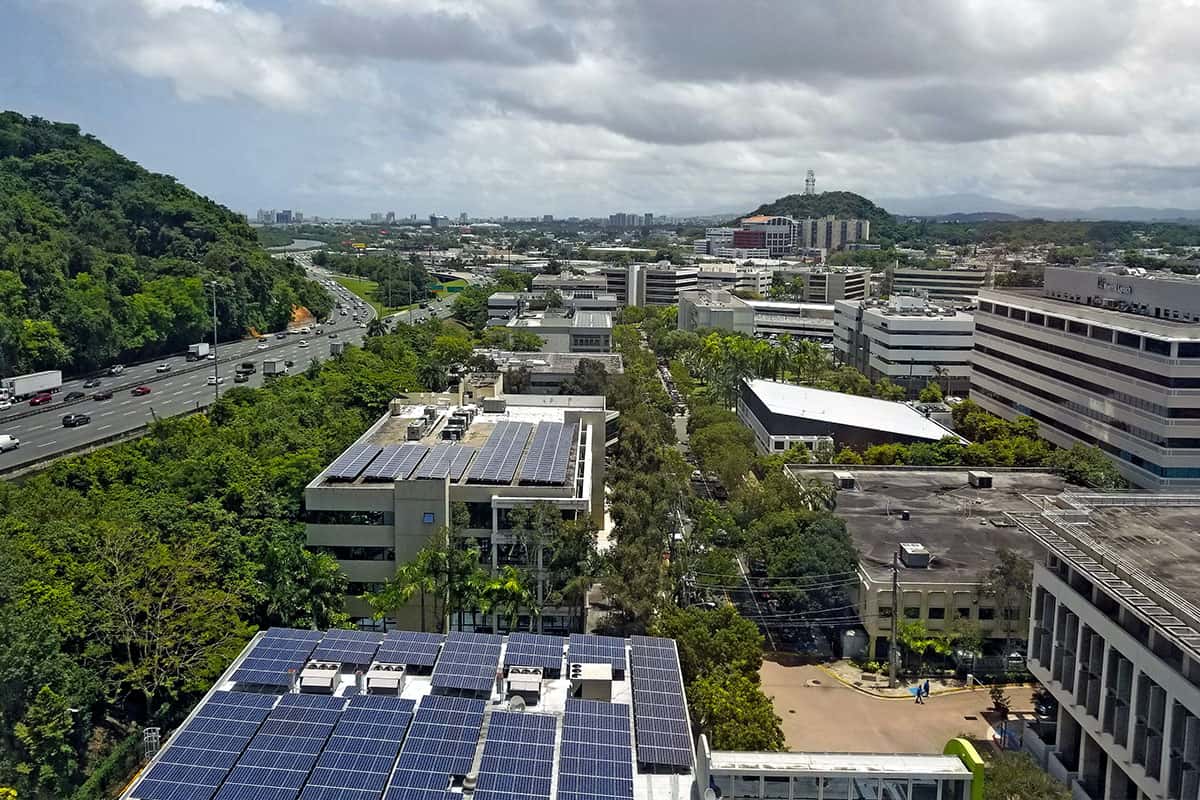Solar is pretty complex. We get questions about nearly every aspect of the technology–especially performance and weather. One of the most common ones we get is “do solar panels work on cloudy days?”
If you’re considering bringing solar to your site, these kinds of questions are important. You want to be sure that you’re getting the most out of your investment. You’d also like to keep the lights on at your commercial building. It’s especially valuable if you’re in one of 7 US cities that get over 200 cloudy days a year.
Yes, solar panels will work on cloudy days, generating limited power from indirect sunlight. But, there’s also a whole lot more to the story.
Do solar panels work on cloudy days?
Yes, solar systems still function during cloudy weather but are less productive. Typically, solar panels will only generate about 10-25% of their normal power output on cloudy days. This translates to about a three quarters or more dip in productivity.
But, the exact number depends on the amount of cloud cover. Solar panels work by taking solar radiation from the sun and converting it into electricity. Any cloud cover acts as a filter or screen, reflecting some of that potential energy back into the atmosphere.
To help you visualize, Alex Beale, a DIY solar reviewer, tested a single 100w solar panel in different light conditions. During periods of full sun, he saw around 90w of energy generation. With light cloud cover, that number dropped to about 50w. Under heavy cloud conditions, the panel produced around 10-20w.
The height of the cover on cloudy days also plays a part in solar production. Low-lying clouds reflect a large portion of sunlight back into space. Higher clouds let more solar radiation through and allow for more productivity.
It’s important to note that there are a lot of factors that influence panel generation. Temperature, panel quality, and system maintenance play a role in the actual output of a solar system.
Will I lose power during cloudy days?
No, you will not lose power during cloudy days and periods of low generation. Your commercial building will always be connected to the grid and have access to utility power, if needed.
During sunny days, your solar panels will most likely overproduce and compensate for low energy periods. The system sends this extra energy back to the grid where you’ll receive credits to use when you need it. Think of the grid as a virtual battery for your building.
If your building has a solar battery, your stored electricity will keep you from needing utility power during cloudy days. These batteries save excess energy during periods of overproduction. They’ll draw from them when panels see decreased solar radiation, like cloudy days or at night.
Do cloudy days help solar panels?
While you’ll get less energy overall, changes in weather patterns aren’t the worst thing for your solar array. Cloud cover helps solar panels by lowering the temperature of the system. This decreases stress on the panels and components, generally increasing their service life.
Rarely, cloudy days can also increase solar panel productivity by causing a period of high light output called cloud lensing. During this phenomenon, water crystals inside of high-level clouds refract light from the sun. This increases the amount of solar radiation on the ground, actually creating more energy than on a clear day.
Do solar panels work in rain?
Yes, solar panels will also work in a limited capacity in the rain. Just like cloudy but dry days, solar panels receive less solar radiation when it’s raining so they will generate less energy
You also don’t need to worry about electrical damage or panel failure during rain. Engineers build solar panels to last, and they should survive many years in outdoor conditions.
Plus, periods of rain may actually be beneficial to solar systems in the long term. Rain can naturally clean dirt and dust buildup off of solar panels. This improves productivity and creates more renewable energy in the sunny days that follow.
Are solar panels viable in cloudy areas?
Yes, solar panels are still viable in parts of the United States that experience the most cloud cover. While they may have limited output on their cloudy days, overproduction during warmer periods and increasing utility rates make solar a financially-smart choice for virtually all areas.
When designing, solar contractors use sophisticated software to create a system that’s best for your building’s environment. This program uses historical data on local weather patterns to create the perfect solar array for your commercial building. It determines the number of panels needed and positions them to make the most of the usable sunlight.
Some of the most cloudy cities in the United States have the highest rates of solar adoption. San Francisco experiences an average 105 cloudy days a year but has 63 total megawatts of solar. Portland sees 222 cloudy days a year and has 46 megawatts of solar. Seattle, which gets around 226 cloudy days, has 34 total megawatts.
Even Alaska, which experiences some of the darkest, cloudiest months of the year, is having a boom in solar investment. The state is improving their grid connections and storage solutions to make solar beneficial for even their most remote areas.
What kinds of solar panels work best in cloudy areas?
There are no special solar panels designed just for cloudy conditions, but bifacial solar panels can make a slight difference in efficiency. These panels collect solar radiation from both the front and back sides of the solar cell.
Bifacial panels pick up a percentage of the energy lost in cloudy weather by collecting light reflected from underneath. When solar radiation shines down on solar panels, some of the energy is lost in areas that don’t generate power, usually the surrounding roof.
By leaving solar cells accessible, bifacial panels can capture this lost energy to increase power yields. They are particularly effective on flat commercial rooftops that have the surface area to reflect more sunlight.
Looking for more solar resources?
King Energy is a leader in commercial solar, managing over a hundred programs at multi-tenant buildings in California. Our roof rental model leases unused roof space from property owners, installing and maintaining solar at no cost. Property owners get increased rent roll and property value. Tenants get lower bills and access to renewable energy.
But, if you’re considering commercial solar, asking if solar panels work on cloudy days is just the start. Check out some of our other educational content to learn more:


